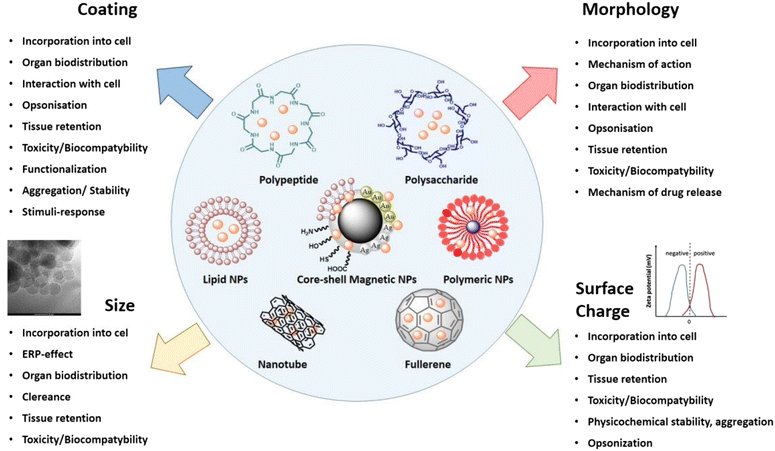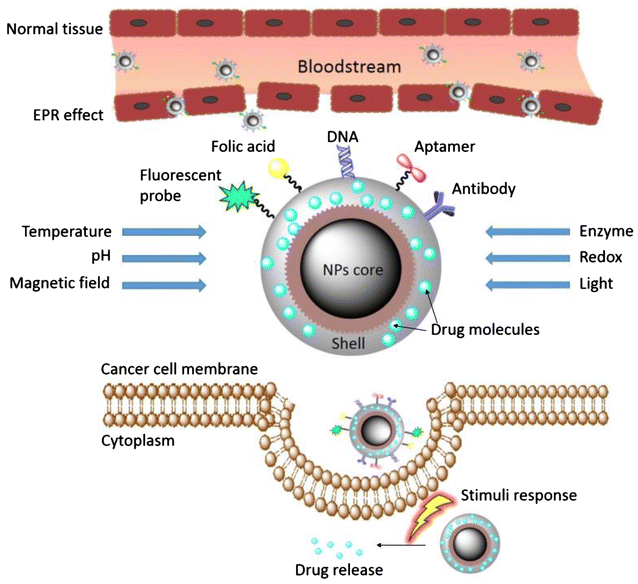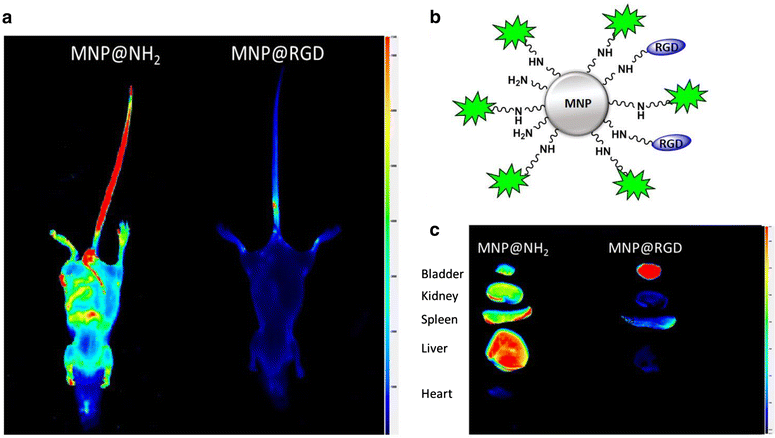Recent insights in nanotechnology-based drugs and formulations designed for effective anti-cancer therapy
- PMID: 27229857
- PMCID: PMC4881065
- DOI: 10.1186/s12951-016-0193-x
Recent insights in nanotechnology-based drugs and formulations designed for effective anti-cancer therapy
Abstract
The rapid development of nanotechnology provides alternative approaches to overcome several limitations of conventional anti-cancer therapy. Drug targeting using functionalized nanoparticles to advance their transport to the dedicated site, became a new standard in novel anti-cancer methods. In effect, the employment of nanoparticles during design of antineoplastic drugs helps to improve pharmacokinetic properties, with subsequent development of high specific, non-toxic and biocompatible anti-cancer agents. However, the physicochemical and biological diversity of nanomaterials and a broad spectrum of unique features influencing their biological action requires continuous research to assess their activity. Among numerous nanosystems designed to eradicate cancer cells, only a limited number of them entered the clinical trials. It is anticipated that progress in development of nanotechnology-based anti-cancer materials will provide modern, individualized anti-cancer therapies assuring decrease in morbidity and mortality from cancer diseases. In this review we discussed the implication of nanomaterials in design of new drugs for effective antineoplastic therapy and describe a variety of mechanisms and challenges for selective tumor targeting. We emphasized the recent advantages in the field of nanotechnology-based strategies to fight cancer and discussed their part in effective anti-cancer therapy and successful drug delivery.
Keywords: Cancer; Drug delivery; Nanotechnology.
Figures



References
-
- Chidambaram M, Manavalan R, Kathiresan K. Nanotherapeutics to overcome conventional cancer chemotherapy limitations. J Pharm Pharm Sci. 2011;14:67–77. - PubMed
Publication types
MeSH terms
Substances
LinkOut - more resources
Full Text Sources
Other Literature Sources

